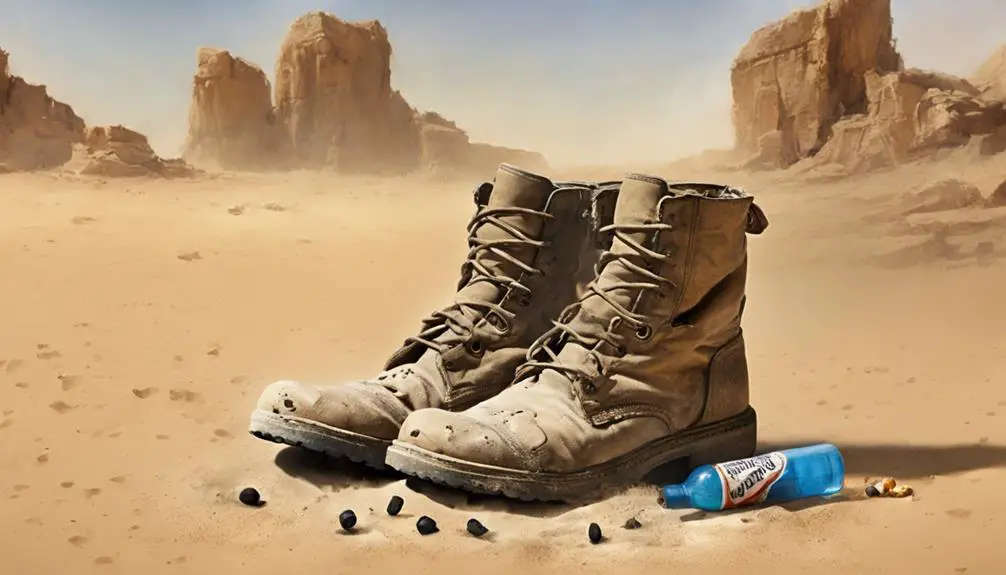When you're in the trenches, you know that Motrin goes by a different name – 'Vitamin I', a code name that's more than just a nickname. It's a trusted ally that helps you power through the toughest missions. In combat zones, ibuprofen is essential for managing pain and inflammation, allowing medics to focus on critical cases. But did you know that 'Vitamin I' is just one of many code names for pain relief in the military? There's more to uncover about the world of military slang – and its significance in high-stress environments.
Origins of Military Slang
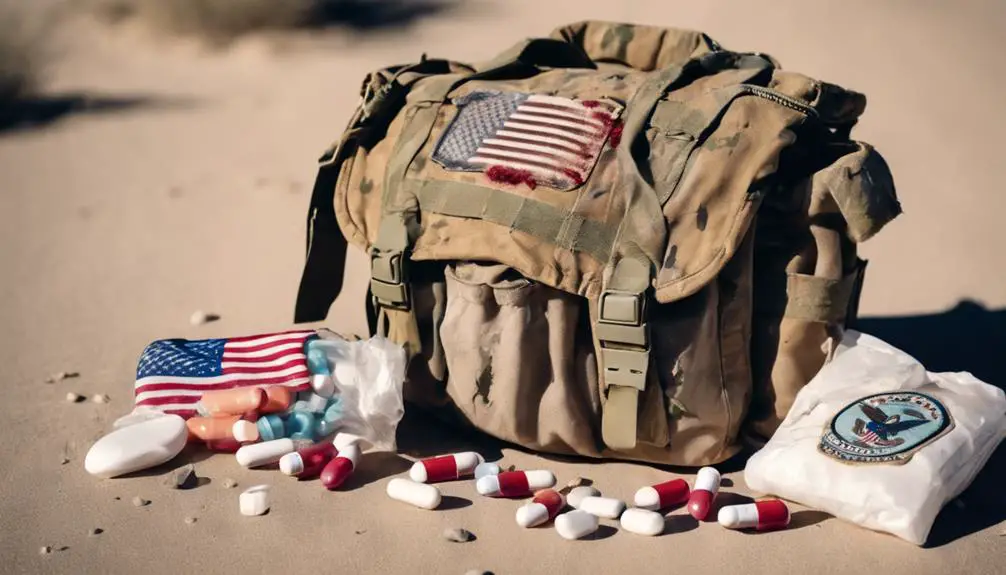
As you explore the world of military slang, you'll find that its origins are rooted in a complex mix of necessity, creativity, and camaraderie. Military personnel have always needed ways to communicate quickly and efficiently, often in high-stress environments. This led to the development of slang, which served as a shorthand for complex ideas and emotions.
Slang etymology reveals that military dialects have evolved over time, influenced by cultural and linguistic exchange. For instance, African American Vernacular English (AAVE) has contributed greatly to military slang, with words like 'dig' (to understand) and 'rap' (to talk) entering the military lexicon. Dialect evolution has also been shaped by technology, with acronyms and abbreviations becoming an integral part of military communication.
As you explore further into military slang, you'll notice that its evolution is closely tied to the cultural and historical context in which it emerged. From World War I's 'trench talk' to the 'grunt speak' of Vietnam, each era has its unique flavor and tone. By examining the origins of military slang, you'll gain a deeper understanding of the complex social dynamics and cultural currents that have shaped this unique dialect.
Ibuprofen in Combat Zones

In combat zones, you're likely to find ibuprofen, commonly referred to as 'Vitamin I' or 'Motrin,' stashed in medkits and pockets alike, serving as an essential pain-reliever for soldiers in the midst of battle. This is because combat zone logistics prioritize accessibility to essential medications, and ibuprofen is a key component in managing pain and inflammation. Battlefield medics often rely on ibuprofen to treat minor injuries, such as headaches, fever, and musculoskeletal pain, allowing soldiers to quickly return to duty. In high-stress environments, every minute counts, and ibuprofen's rapid relief enables medics to focus on more critical cases. Furthermore, ibuprofen's wide availability and ease of administration make it an ideal choice for self-medication, allowing soldiers to treat themselves in emergency situations. As a result, ibuprofen has become an indispensable component of combat zone medical supplies, providing essential pain relief in the heat of battle.
Code Names for Pain Relief
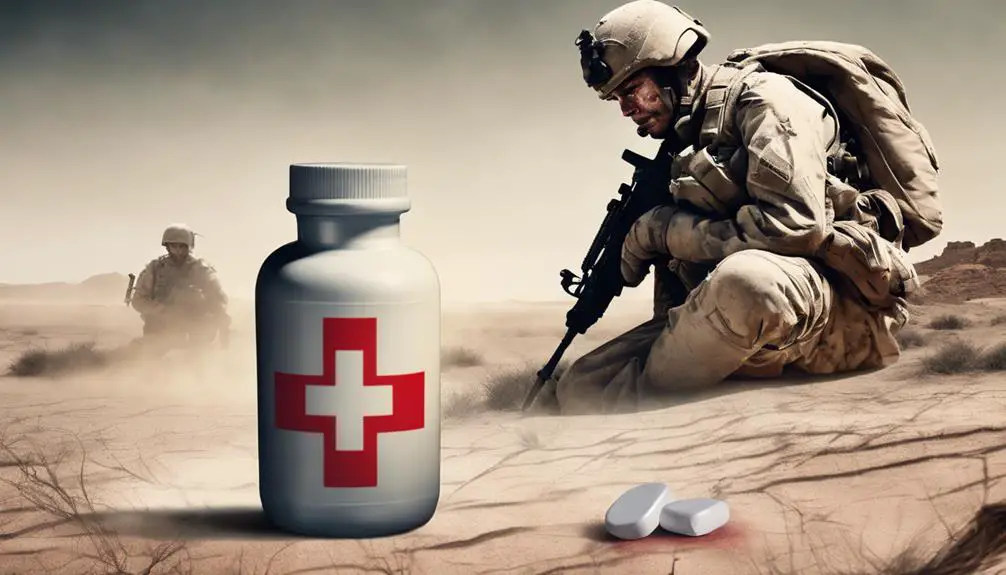
You're likely familiar with the military's affinity for code names, and when it comes to pain relief, 'Vitamin I' and 'Motrin' are just the beginning. These code names are part of a broader military pharmacopeia, offering pain relief alternatives for troops in the field. 'Ibuprofen' becomes 'Vitamin I', while 'Motrin' is used interchangeably with 'Vitamin M'. These cryptic names serve as a shorthand for medics and soldiers alike, allowing for quick communication in high-pressure situations.
Beyond these well-known code names, other pain relief alternatives have their own monikers. 'Tylenol' becomes 'Vitamin T', while 'Aleve' is referred to as 'Vitamin A'. These code names are more than just a quirk of military culture – they're a crucial tool for efficient communication in the heat of battle. By using these cryptic names, medics and soldiers can quickly request and distribute pain relief without drawing attention to their medical supplies. This clandestine language is just one aspect of the military's intricate system of code names, designed to protect sensitive information and maintain operational security.
Ranger Candy Defined
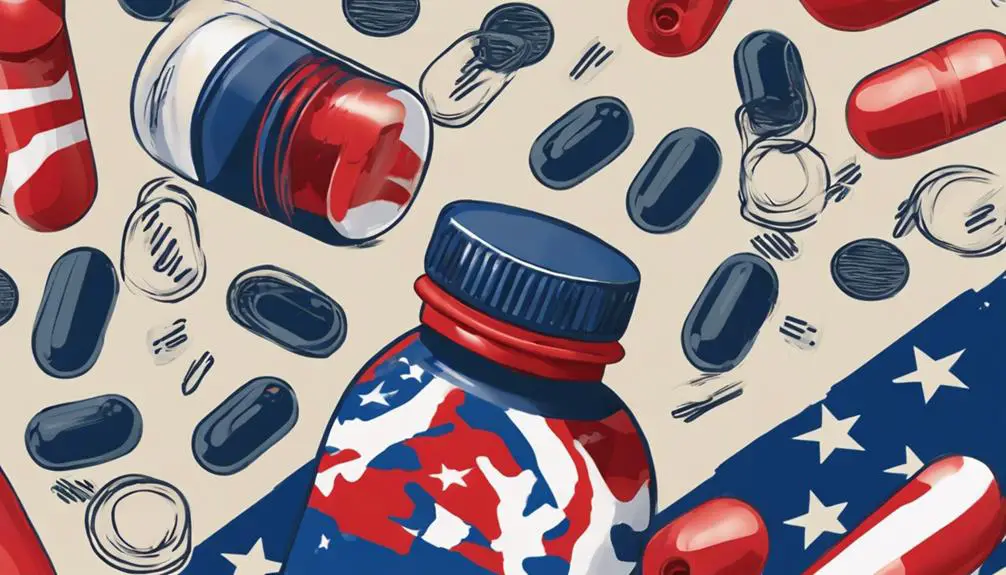
Ranger Candy, a term you might've heard tossed around in military circles, refers to a specific type of pain relief that's earned a special place in the hearts of soldiers. It's not a fancy acknowledgment, but a validation to the drug's effectiveness in combat zones. You see, when you're in the midst of battle, aches and pains are the last thing you need. That's where Ranger Candy comes in – a reliable ally that helps you power through the toughest of missions.
In Ranger rehab, Motrin is often the go-to medication for managing pain and inflammation. It's a staple in many a soldier's first-aid kit, providing much-needed comfort in the heat of battle. Combat comfort is key, and Ranger Candy delivers. It's not just about masking the pain, but about getting back to the fight. With Ranger Candy, you can focus on the task at hand, knowing your body's got the support it needs to push through. It's a trusted sidekick that's earned its place in military lore.
Meatball Medication Myth
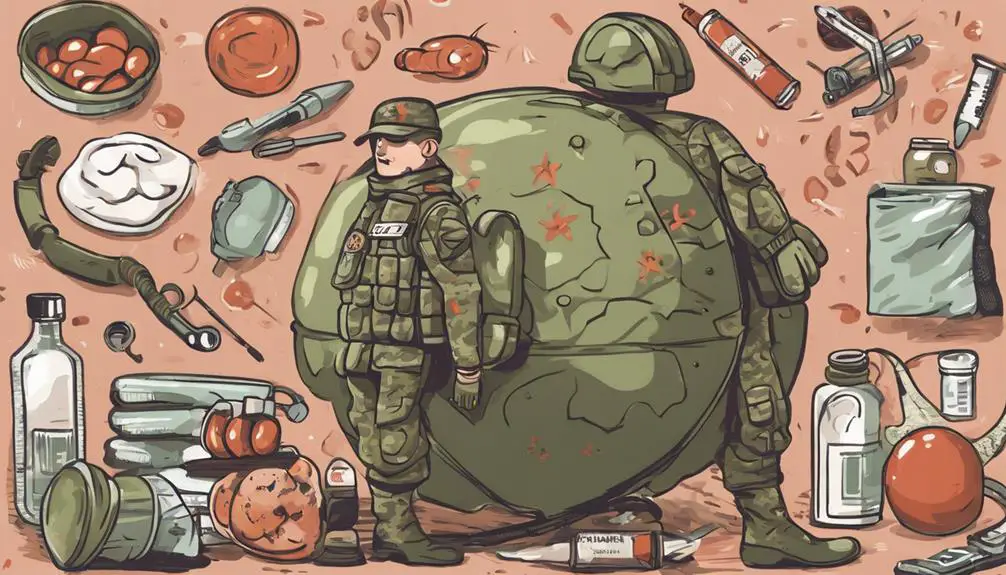
Each soldier's probably heard the myth that Motrin's nicknamed 'Meatball' due to its resemblance to the Italian dish. You've likely heard the story that the pill's shape and color resemble a meatball, leading to the nickname. But, let's get to the truth. The origins of the term 'Meatball' have nothing to do with the Italian culinary delight.
It's time for some Meatball mythbusting. Debunking urban legends is crucial, particularly when it comes to military slang. The real reason behind the nickname 'Meatball' remains unclear, but it's not due to the pill's appearance. It's possible that the term originated from the pill's size, shape, or even its packaging. Whatever the reason, it's important to separate fact from fiction.
Medication in Military Culture
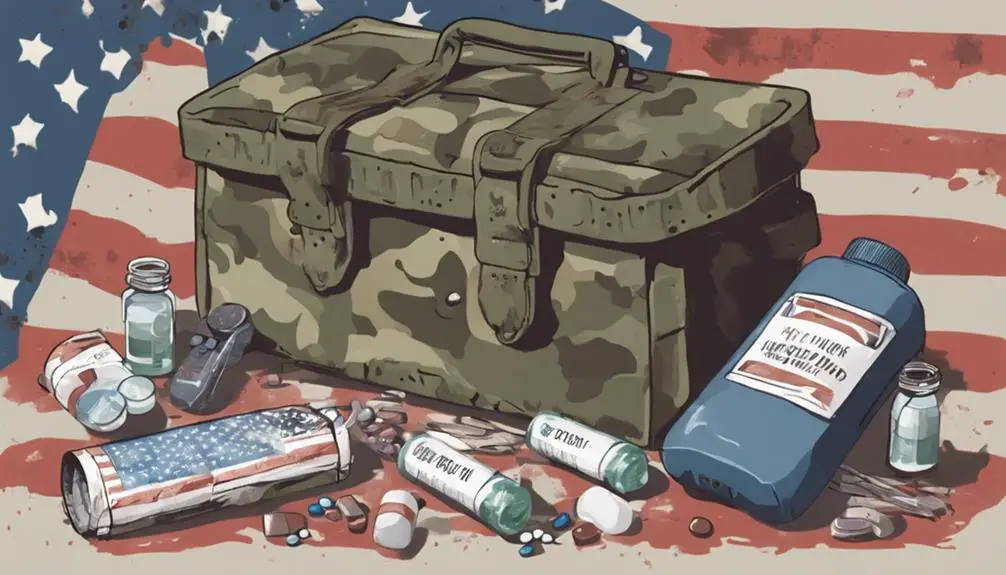
In military culture, prescription medications like Motrin have become an integral part of daily life, with soldiers often relying on them to manage pain and inflammation during deployments. You may be surprised to learn that military personnel have their own slang terms for medications, like 'Motrin' being referred to as 'Vitamin M'. This speaks to the ubiquity of medications in military culture.
The military drug culture is unique, with medications being dispensed in combat zones through pharmacies specifically designed for the military. These combat zone pharmacies operate under challenging conditions, ensuring that soldiers receive the medication they need amidst the chaos of war. As a result, medications have become an essential part of a soldier's daily routine, allowing them to function at peak levels despite the physical demands of their job. You'll find that medications are often readily available, and their use is widespread in military culture.
Secure Communication Methods
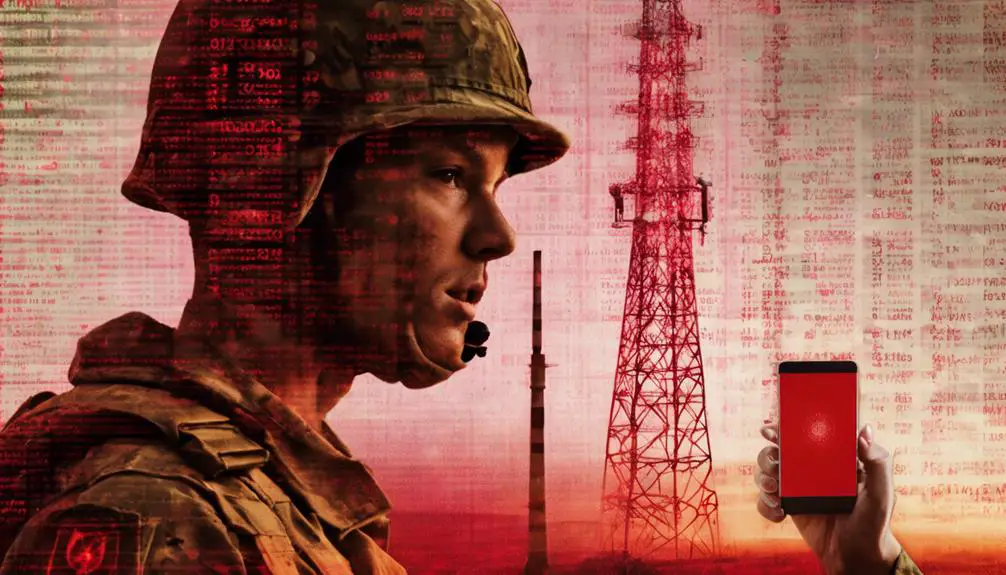
You'll need to rely on secure communication methods to convey sensitive information, as the enemy is always listening. In a military context, secure communication is vital to protect classified information and prevent it from falling into the wrong hands. One way to guarantee secure communication is through signal encryption methods, which scramble data to make it unreadable to unauthorized parties. This method is particularly useful for radio communications, where signals can be easily intercepted.
Another approach is to use secure messaging apps, designed specifically for military use. These apps employ advanced encryption algorithms to safeguard messages, ensuring that only authorized personnel can access the information. Some apps also include features like self-destructing messages, which delete sensitive information after a set period, minimizing the risk of data breach. By leveraging these secure communication methods, you can rest assured that your sensitive information remains confidential and protected from prying eyes.
Evolution of Military Jargon
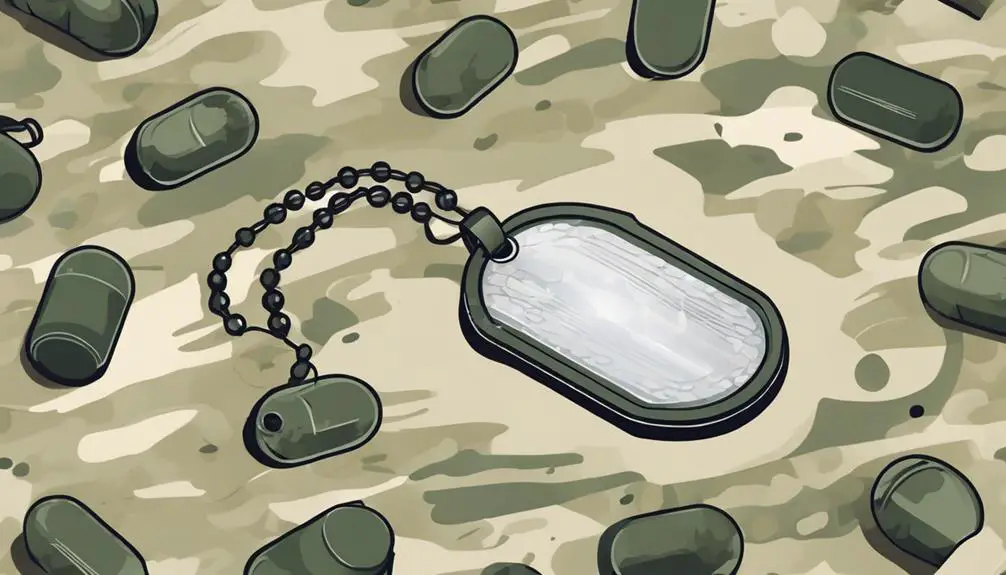
As you explore the world of military communication, you're likely to encounter a unique language that's been shaped by centuries of wartime vernacular, colloquialisms, and abbreviations. This distinct dialect, known as military dialectics, has evolved over time to serve a vital purpose: to convey complex information quickly and securely.
In the heat of battle, clear communication is essential, and military jargon has adapted to prioritize brevity and clarity. For instance, using abbreviations like 'SITREP' (situation report) or 'COMMS' (communications) saves time and minimizes confusion. This linguistic camouflage allows troops to convey sensitive information without arousing suspicion from potential eavesdroppers.
Throughout history, military jargon has incorporated slang, acronyms, and technical terms to create a complex, yet effective, language system. As you explore further into the world of military communication, you'll discover how this unique dialect has been refined to ensure seamless coordination and efficient decision-making in high-pressure situations.
Motrin on the Battlefield
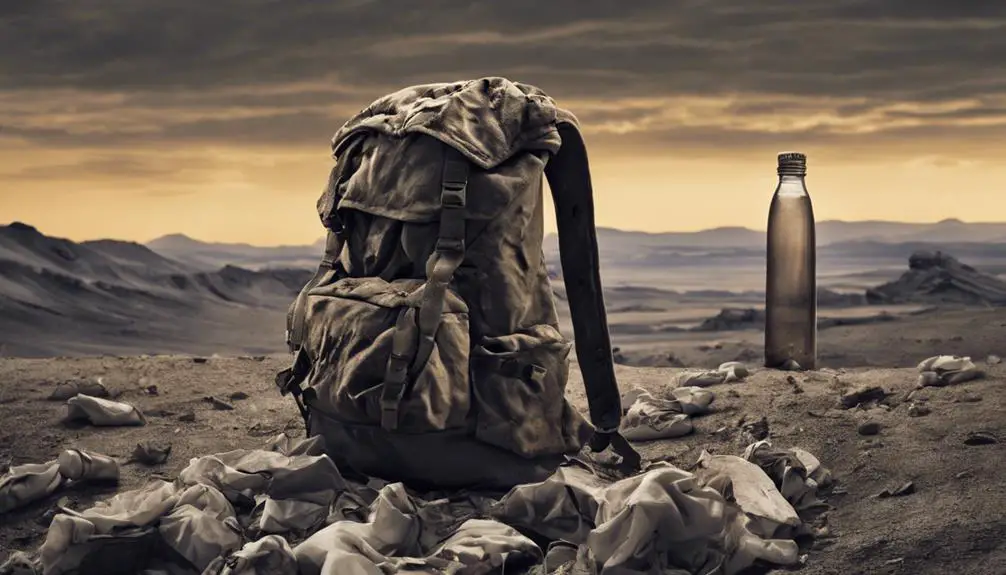
On the battlefield, where every second counts, you're likely to hear 'Motrin' being called out – but it's not a military operation or tactic, it's a slang term for a common pain reliever. In the midst of chaos, medics and combat soldiers alike rely on this medication to alleviate pain caused by battlefield injuries. Pain management strategies are essential in combat zones, where every minute counts. Motrin, or ibuprofen, is often the go-to medication for reducing inflammation and alleviating discomfort. When you're in the heat of battle, the last thing you want to worry about is a throbbing headache or aching muscles. By having Motrin readily available, soldiers can focus on their mission, rather than being sidelined by pain. In high-stress environments, effective pain management is vital to maintaining operational readiness. By understanding the importance of Motrin on the battlefield, you'll appreciate the critical role it plays in keeping soldiers combat-ready.
Slang in Military History
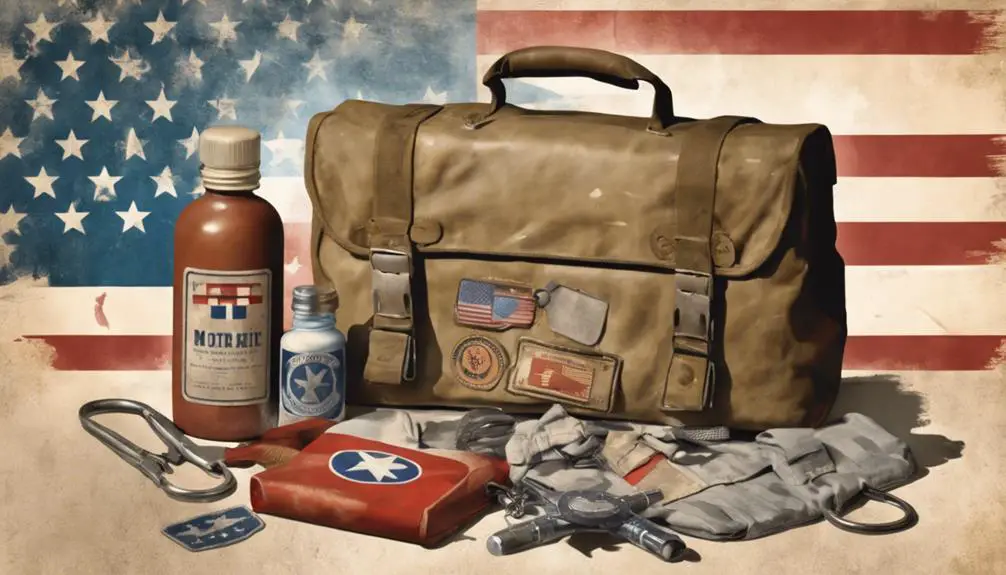
Military slang has been an integral part of the armed forces' culture, with terms like 'Motrin' serving as a proof to the creative and often humorous ways soldiers have used language to communicate efficiently in high-stress environments. You're probably wondering how this phenomenon has evolved over time. Well, let's delve into the history of military slang.
In the early days of warfare, soldiers developed unique dialects to quickly convey complex information on the battlefield. This warrior dialectics allowed them to communicate effectively, even in the chaos of combat. The study of combat linguistics reveals that military slang has not only been a tool for communication but also a way to create a sense of camaraderie and shared identity among troops.
Throughout history, military slang has been shaped by cultural and historical contexts. You'll find that different eras and regions have their own distinct slang, reflecting the unique experiences and challenges of their time. By examining the evolution of military slang, you'll gain a deeper understanding of the creative and resourceful ways soldiers have used language to adapt to the demands of warfare.
Frequently Asked Questions
Can You Take Motrin With Other Medications Simultaneously?
When taking Motrin, you need to be cautious about drug interactions. You should review your medication schedule to avoid overlaps or adverse reactions. If you're already taking medications for high blood pressure, blood thinners, or antidepressants, consult your doctor before adding Motrin. Inform your doctor about all medications, including supplements, to guarantee safe co-administration. Adjust your medication schedule accordingly to minimize potential interactions.
Is Motrin Effective for Treating Migraines in Soldiers?
Imagine a stormy weather, symbolizing the turmoil of a migraine. You're not alone; migraines affect many soldiers. Motrin can be an effective pain management strategy, but it's essential to identify and avoid your personal migraine triggers. By doing so, you'll reduce the frequency and severity of attacks, allowing Motrin to work more efficiently. When taken correctly, Motrin can help alleviate migraine symptoms, providing relief from the storm.
Are There Alternative Pain Relievers Used in Combat Zones?
You're likely familiar with Motrin, but in combat zones, you'll encounter alternative pain relievers. When in the heat of battle, you need effective Battlefield substitutes. Combat alternatives like acetaminophen or aspirin are often used to treat pain and fever. In some cases, stronger medications like ketorolac or fentanyl may be administered. It's essential to follow medical guidance when using these alternatives to ensure safe and effective pain management in high-stress environments.
Can Motrin Be Used to Treat Inflammation in Wounded Soldiers?
You're likely familiar with the concept of rapid wound management on the battlefield. Take, for instance, a hypothetical scenario where a soldier suffers a gunshot wound in combat. In this situation, Motrin can be used to treat inflammation, helping to reduce pain and swelling. As part of a thorough wound management strategy, Motrin can be an effective tool in stabilizing battlefield injuries, allowing medical personnel to focus on more critical aspects of care.
Do Military Personnel Use Motrin for Hangover Relief?
You're probably wondering if military personnel use Motrin for hangover relief. The answer is yes, many do. It's not uncommon for service members to pop a Motrin or two to prevent or alleviate hangover symptoms after a night of heavy drinking. This morning recovery trick is popular among military personnel, helping them feel better and get back to duty quickly.

